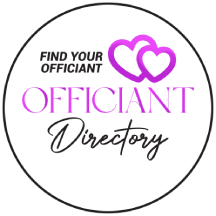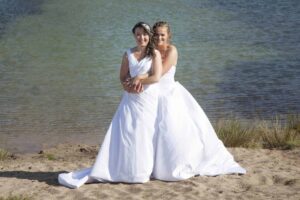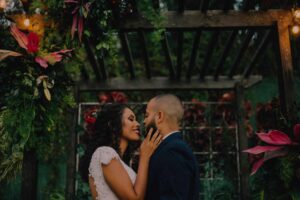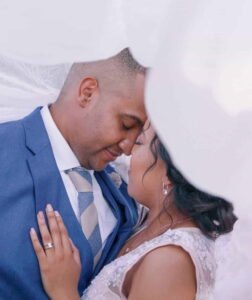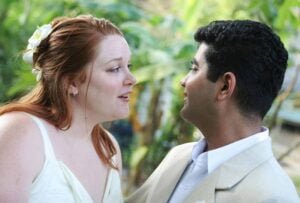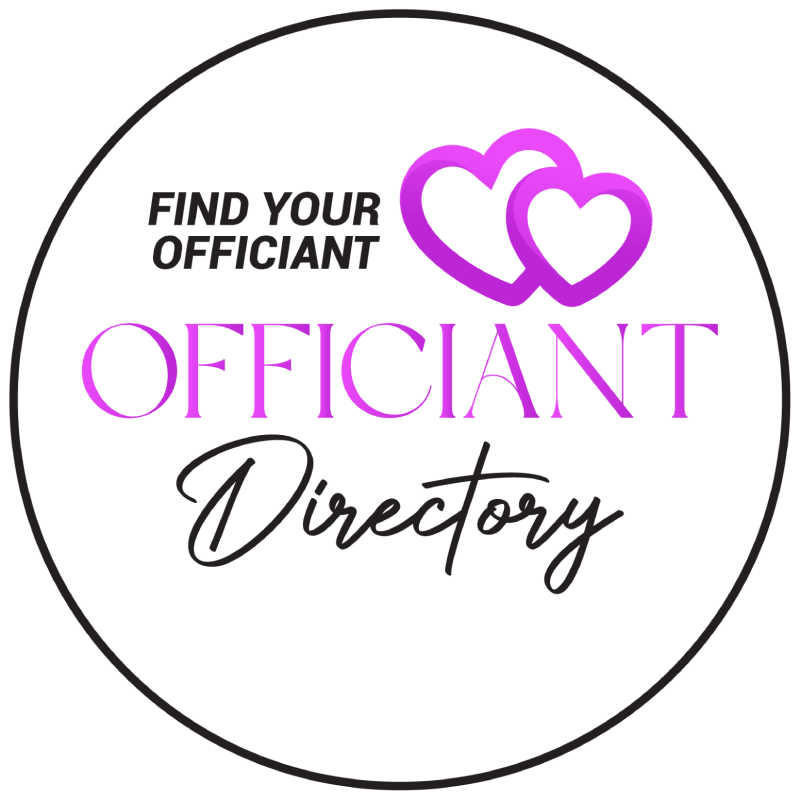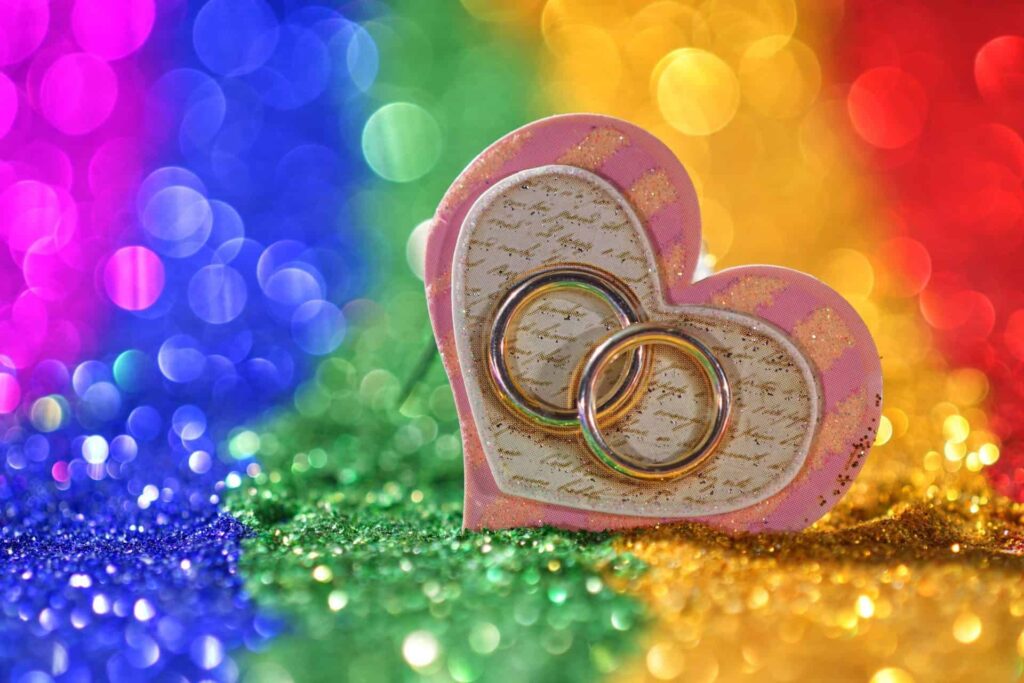
LGBTQ+ Wedding Officiant’s #1 Guide- Because Love is Love!
By Reverend Scarlett Mullikin
As professional Wedding Officiants today, we want to be as friendly, engaging, and inclusive as possible for all our clients. With more visibility these days, people are beginning to understand that LGBTQ+ orientation and gender identity is more of a spectrum than the stark black and white as previously viewed. This article is to help those who may not be as well versed in the LGBTQ+ community. To hopefully see how they can improve their client interactions and wedding ceremonies to be more inclusive.
Who are our LGBTQ+ Clients?
Literally any & all who do not identify as heterosexual or CIS (comfortable in birth sex) gendered. In reality, you may not even know if a client is still closeted. There could be dozens of reasons why an individual may not be public about how they fit into the Rainbow of Orientation and Gender Spectrum.
Being a wedding officiant includes being an LGBTQ+ wedding officiant. We want to be as welcoming and helpful to our clients as possible. Reaching that goal begins with understanding our couples as best as we can. For those who may not be familiar with the LGBTQ+ community, here are a few basic mentions.
What does LGBTQ+ mean?
LGBTQ+ stands for more than just gay and lesbian (what many consider typical same-sex couples). The acronym includes gay, lesbian, bisexual, transgender, queer/ questioning, pansexual, and many other orientation descriptions that you may not have heard of before. Gender Identity falls into defining aspects of orientations yet is a separate subject for individuals. Non-binary is an often-overlooked identity.
Transgender Folks
Let us look at Transgender folks and their journey. From initial inclination to beginning the actual steps, the process often takes years. Once the decision is made to transition, they face a whole new set of challenges. Finding doctors, counselors (required by-laws) can take another year. Then the steps of the process can go on for an average of 2 years or more. It is not uncommon for transgender persons to move to a completely different area, to start life over with a new slate, in their new identity.
When individuals go to great lengths during or after the transition process, we want to be respectful, and correctly address them. Regardless of what stage they are at, address them in the name and gender of their wishes. Now if they are early in the process and their name change and documentation are not finalized, the name on the marriage license will need to match their current IDs. However, during the spoken portion of the Ceremony, it is acceptable, even preferred, to address them in their affirmed gender identity and name. (Check with the laws of your state to be sure this is allowed).
And guess what? Chances are you have encountered or even worked with transitioned individuals and not even known about it.
Non-binary individuals do not see themselves clearly on one side or the other of the male / female binary as majority of population. Quite often non-binary (NB) individuals live in an androgynous existence or self-image. Those individuals would prefer a gender-neutral term or pronoun, such as they / them. Example: They have a beautiful outfit on today. If one of your wedding couple is a non-binary, it would not be fitting to address them as bride or groom. Instead you can express their title as partner, spouse, using personal pronouns, as they/them. Ask your individual, what their own preferred pronouns are and use those accordingly.
The Marketing Approach
Now for our marketing approach. As wedding officiants, we want to market to all the clientele that we are willing to perform ceremonies for with an all-inclusive approach. LGBTQ+ face rejection often. It is expected that vendors will reject them. Consider your wording in your advertisements. If you use “Same-Sex marriage”, this may read or imply you are only offering services to gay or lesbian couples, not necessarily including all the other arrangements, or relationship structures that could be. At the same time, many of those gay and lesbian couples might be searching for the term, “Same-Sex marriage”.
It may be a good idea to include both Same-Sex and LGBTQ+ Wedding ceremonies. This way your service can be discovered under either option that they search by. Consider using both terminologies while setting up your advertisements.
Helpful hint: Using photos of all types of couples speaks to all types of couples. LGBTQ+ folks resonate with a vendor who is more than happy to work with them.
Communication
Accidental non-inclusive dialog can happen from the very beginning of our client interactions. As often is the case, a woman is initiating the inquiries. Even at that first contact, if you hear what sounds like a female voice or name, instead of asking “what is the groom’s name?”, try asking, “what is your partner’s or significant other’s name?”. This instantly lets the couple know that you are accepting of all couples!
It is perfectly acceptable to ask respectfully, what pronouns each prefer to be addressed by. Take a moment and think of how often as officiants we automatically say, “Bride & Groom”. It is perfectly fine if that fits the couple. Many women do not resonate with the term “bride” at all. Turn your initial questions and replies to a more neutral approach at least until you know their preference.
Be sure to ask your couple, how they prefer to be addressed at the end of the ceremony, not just what name to use at their pronouncement, but whether they even want to be called bride or groom, spouse, or partners. This can change according to each individual’s identity, gender expression. Transitioning individuals may be at any part of their process at the time that they decide to get married. Again, this is a time of transition.
Use the terminology and pronoun preference, as they are going to be at the end of their transition process. Do not be afraid to ask the individual direct questions about their gender pronouns, and how they prefer to be addressed, name and otherwise. Your couples will appreciate the respect that you took the time to ask, rather than assume. With transitioning individuals, you will need to discuss the legal aspect and timeframe of how their names should be signed. This will be according to if they have their name already altered to match their completed transition identity. This may affect the paperwork. But in the ceremony, you can address them in their preference, regardless of what their driver’s license says at the moment if your law allows you to do so.
Now for the fun part: OFFICIATING
When officiating a wedding for individuals of the LGBTQ+ community, quite often, many of their friends and even some of their family will also be members of the LGBTQ+ spectrum. A good way to include everyone during the wording of your ceremony is to make subtle changes along the way. A good idea for inclusiveness is to keep the wording as gender-neutral as possible.
Let us look at the beginning of our ceremonies. How many of us have grown accustomed to opening with, “Welcome, ladies and gentlemen”? If any of the individuals attending that wedding are non-binary, or in midst of transition, this gradient alone may alienate them. A good alternative is to start with, “Welcome, family and friends. Thank you for gathering here to witness the joining of these partners in marriage.”
Earlier in the article, we touched on the pronouncement at the close of the ceremony, names used versus ID’s, and being sure of any important details when signing the formal paperwork. Keep in mind, inclusiveness begins with our advertising on social media and other platforms, to our initial interaction, to finalizing the papers post-ceremony. There lie a dozen opportunities to wrap our clients in a huge rainbowed hug, in how we honor, respect, and see them for the beautiful individuals they are.
Happy Weddings to you all!
Reverend Scarlett Mullikin
Natural Element Ceremonies
s.mullikinofficiant@yahoo.com
Still looking for a wedding officiant? Search for your perfect Officiant here on our website.

Donna Lynn
Donna Lynn is a light-hearted, non-boring San Diego officiant, experienced with elopements, weddings, vow renewals, and hand-fastings. LGBTQ+ and diversity aligned.
